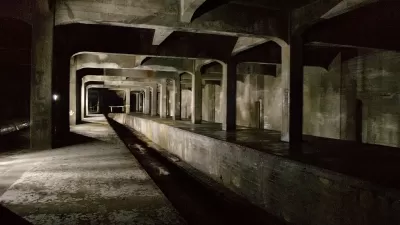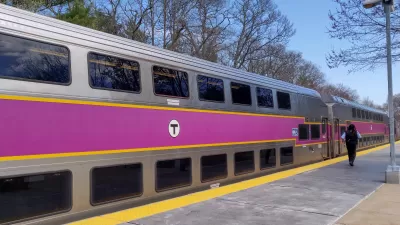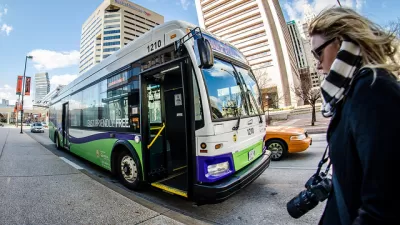Factors such as age, labor costs, real estate, and construction all factor into why cities are paying more money for transit projects, but are still getting less on their return, writes David Lepeska for The Atlantic Cities.
Subway costs have remained relatively low internationally in comparison to places like New York. While Singapore is building the world's longest and fully automatic underground transit line at $130 million per kilometer, New York's subway line is costing $1.7b per km, the most expensive line of all time.
"Robert Paaswell, engineering professor at the City College of New York and director of the University Transportation Research Center, says costs are so high in Chicago and New York because their systems are the country's oldest and thus the most expensive to upgrade," writes Lepeska.
Also, United States population find public transit projects less of a priority in comparison to other European countries.
"There's no urgency by governments or citizens here to get subways done, and when it finally happens the construction causes so much inconvenience that people don't like it," said Paaswell, a former CTA executive director. "In Europe, they don't care too much about it, they just blast right through and get it done."
FULL STORY: Why $1 Billion Doesn't Buy Much Transit Infrastructure Anymore

Planetizen Federal Action Tracker
A weekly monitor of how Trump’s orders and actions are impacting planners and planning in America.

Maui's Vacation Rental Debate Turns Ugly
Verbal attacks, misinformation campaigns and fistfights plague a high-stakes debate to convert thousands of vacation rentals into long-term housing.

Restaurant Patios Were a Pandemic Win — Why Were They so Hard to Keep?
Social distancing requirements and changes in travel patterns prompted cities to pilot new uses for street and sidewalk space. Then it got complicated.

In California Battle of Housing vs. Environment, Housing Just Won
A new state law significantly limits the power of CEQA, an environmental review law that served as a powerful tool for blocking new development.

Boulder Eliminates Parking Minimums Citywide
Officials estimate the cost of building a single underground parking space at up to $100,000.

Orange County, Florida Adopts Largest US “Sprawl Repair” Code
The ‘Orange Code’ seeks to rectify decades of sprawl-inducing, car-oriented development.
Urban Design for Planners 1: Software Tools
This six-course series explores essential urban design concepts using open source software and equips planners with the tools they need to participate fully in the urban design process.
Planning for Universal Design
Learn the tools for implementing Universal Design in planning regulations.
Heyer Gruel & Associates PA
JM Goldson LLC
Custer County Colorado
City of Camden Redevelopment Agency
City of Astoria
Transportation Research & Education Center (TREC) at Portland State University
Jefferson Parish Government
Camden Redevelopment Agency
City of Claremont





























